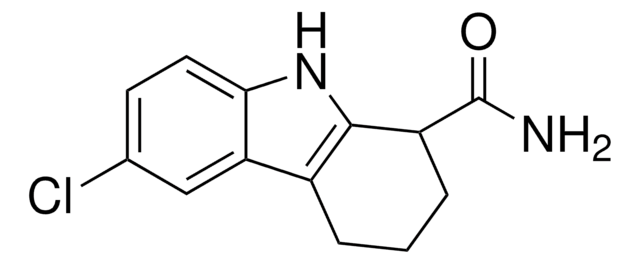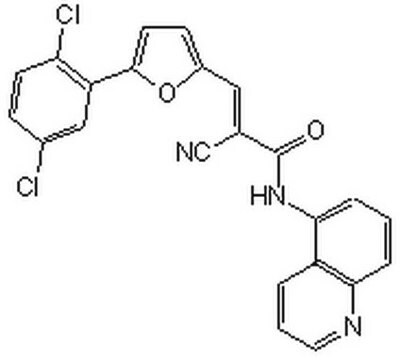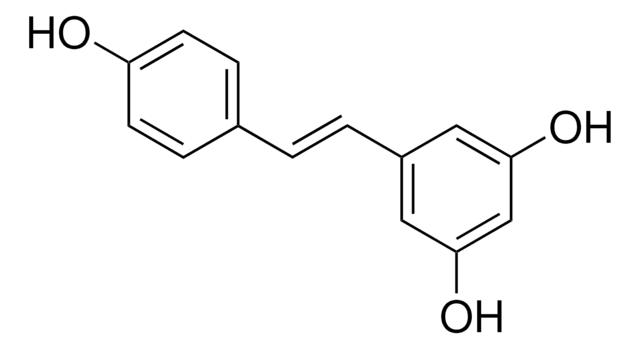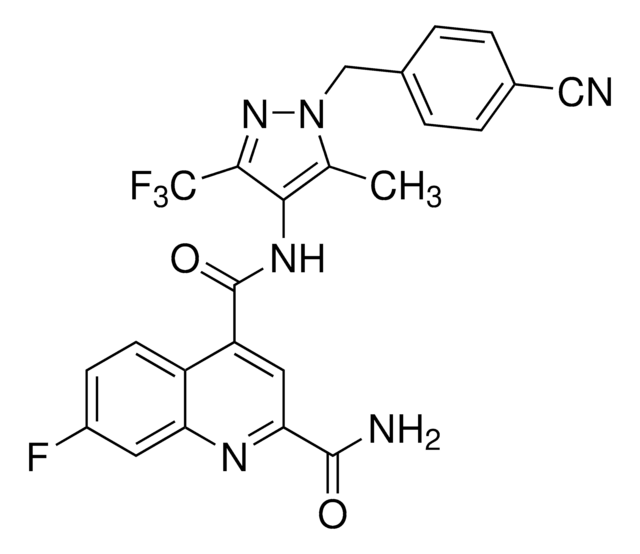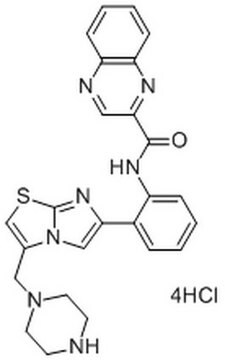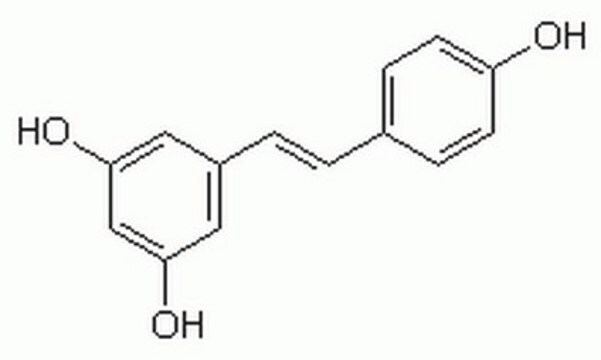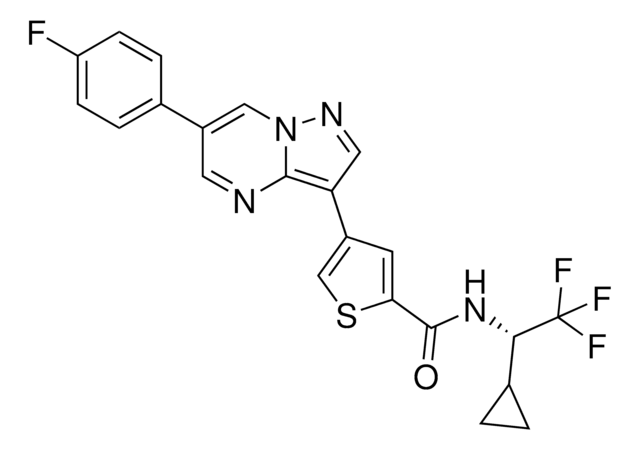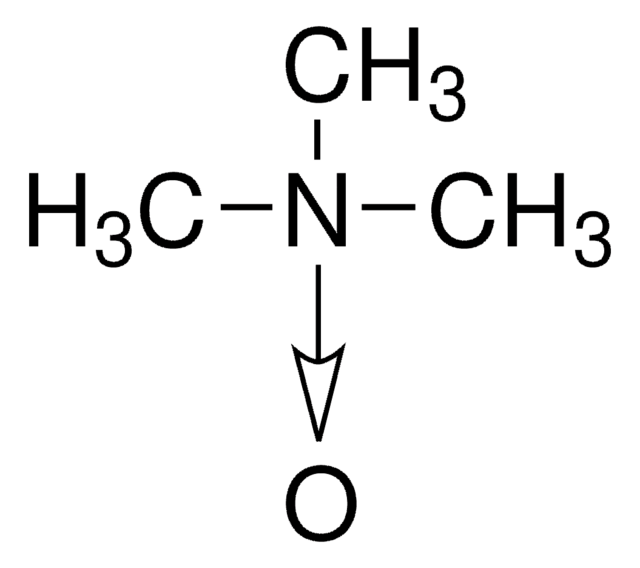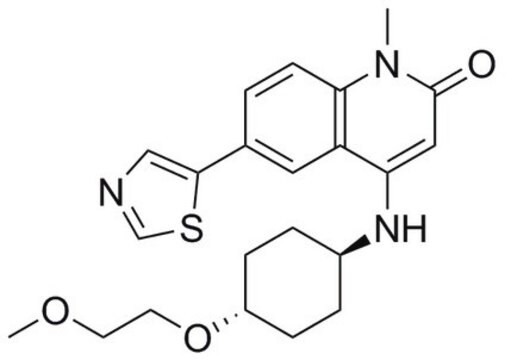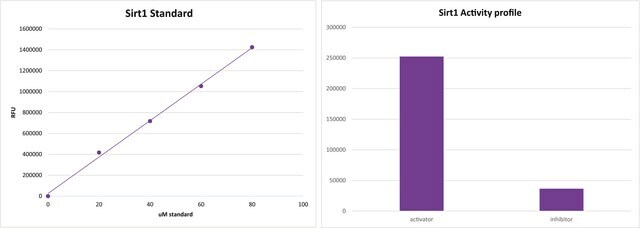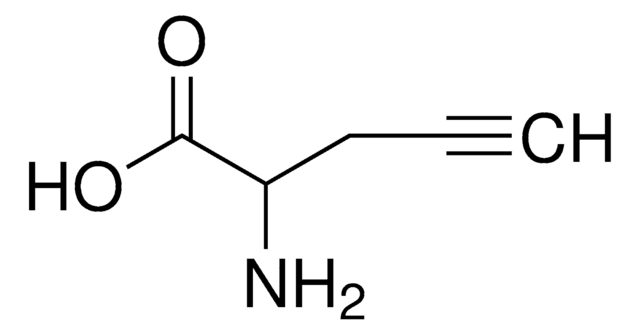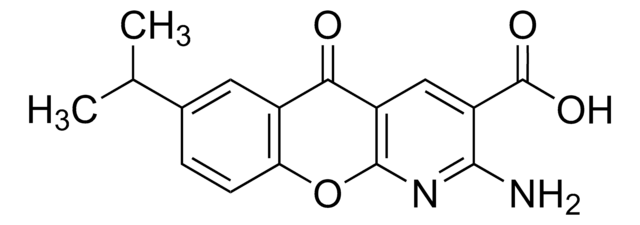567860
SRT1720
SRT1720, CAS 925434-55-5, is a cell-permeable inhibitor of the mitochondrial SIRT3. Inhibition is AceCS2-competitive (Ki = 0.56 µM; Km = 2.44 µM), but NAD+-uncompetitive (Ki = 0.34 µM; Km = 280 µM).
Synonyme(s) :
SRT1720, HAT Inhibitor XI, Histone Acetyltransferase Inhibitor XI, p300/CBP Inhibitor IX, N-(2-(3-(1-Piperazinylmethyl)imidazo[2,1-b]thiazol-6-yl)phenyl)-2-quinolinecarboxamide, Sirtuin-3 Inhibitor, SRT1720, SIRT3 Inhibitor II, HAT Inhibitor XI, Histone Acetyltransferase Inhibitor XI, p300/CBP Inhibitor IX, SIRT3 Inhibitor II, N-(2-(3-(1-Piperazinylmethyl)imidazo[2,1-b]thiazol-6-yl)phenyl)-2-quinolinecarboxamide, Sirtuin-3 Inhibitor, SRT1720
About This Item
Produits recommandés
Niveau de qualité
Pureté
≥97% (HPLC)
Forme
solid
Fabricant/nom de marque
Calbiochem®
Conditions de stockage
OK to freeze
protect from light
Couleur
yellow
Solubilité
DMSO: 2.5 mg/mL, clear, yellow
Conditions d'expédition
ambient
Température de stockage
−20°C
Chaîne SMILES
O=C(C1=NC(C=CC=C2)=C2N=C1)NC3=CC=CC=C3C4=CN5C(SC=C5CN6CCNCC6)=N4
InChI
1S/C25H23N7OS/c33-24(22-13-27-20-7-3-4-8-21(20)28-22)29-19-6-2-1-5-18(19)23-15-32-17(16-34-25(32)30-23)14-31-11-9-26-10-12-31/h1-8,13,15-16,26H,9-12,14H2,(H,29,33)
Clé InChI
IASPBORHOMBZMY-UHFFFAOYSA-N
Description générale
Conditionnement
Avertissement
Autres remarques
Minor, R.K., et al. 2011. Sci. Rep.1, 70.
Huber, J.L., et al. 2010. Future Med. Chem.2, 1751
Pacholec, M., et al. 2010. J. Biol. Chem.285, 8340
Jin, L., et al. 2009. Protein Sci.18, 514
Feige, J.N., et al. 2008. Cell Metab.8, 347
Milne, J.C., et al. 2007. Nature450, 712.
Informations légales
Code de la classe de stockage
11 - Combustible Solids
Classe de danger pour l'eau (WGK)
WGK 3
Point d'éclair (°F)
Not applicable
Point d'éclair (°C)
Not applicable
Certificats d'analyse (COA)
Recherchez un Certificats d'analyse (COA) en saisissant le numéro de lot du produit. Les numéros de lot figurent sur l'étiquette du produit après les mots "Lot" ou "Batch".
Déjà en possession de ce produit ?
Retrouvez la documentation relative aux produits que vous avez récemment achetés dans la Bibliothèque de documents.
Les clients ont également consulté
Notre équipe de scientifiques dispose d'une expérience dans tous les secteurs de la recherche, notamment en sciences de la vie, science des matériaux, synthèse chimique, chromatographie, analyse et dans de nombreux autres domaines..
Contacter notre Service technique